Last week members of the UN High Level Panel met in London to discuss the successor to the Millennium Development Goal framework. The meetings, co-chaired by PM Cameron, President Yudhoyono of Indonesia and President Ellen Johnson Sirleaf of Liberia, represent a unique opportunity to reflect on what new framework could drive poverty eradication when the MDGs expire. The world has come a long way since the current goals were set, but many stubborn challenges persist and deserve our attention and thought more than ever.
This first set of meetings focused on individual and household level poverty and the key issues confronted day after day by the poorest all over the world. From the car mechanic in rural Kenya to the smallholder potato farmer in Peru, microenterprises run by poor people in developing countries make up a large part of the private sector. At every level of the business spectrum – from the lone trader to the multinational – business is creating employment, generating incomes and delivering essential services for the poorest individuals and households. As a principal source of tax revenues for country governments, business is also the largest component of the economy and a key driver of economic growth.
 My Department’s core focus is to reduce poverty through helping to drive economic growth and create jobs for the poorest and most vulnerable people. Working with businesses both big and small forms a crucial part of this mission. The Coalition Government has over the last two years intensified its work with business in the battle against poverty. Our work recognises this important dynamic with two complementary approaches to business and development:
My Department’s core focus is to reduce poverty through helping to drive economic growth and create jobs for the poorest and most vulnerable people. Working with businesses both big and small forms a crucial part of this mission. The Coalition Government has over the last two years intensified its work with business in the battle against poverty. Our work recognises this important dynamic with two complementary approaches to business and development:
Firstly, we work directly with businesses to create shared value within the developing world by aligning businesses’ core activities with broader development objectives. This entails providing the technical expertise and the credibility they need to adopt inclusive business models that create jobs or deliver products and services of value to poor people. This includes our work to ensure that financial institutions have the appropriate skills and product lines to provide appropriate credit and savings products to poor people and small companies. We also work with retailers here in the UK to support African food producers to get their products onto our local supermarket shelves.
Secondly, we work on improving the investment climate to make it easier for companies of all sizes to operate in new places. By focusing on improving infrastructure, market knowledge, access to finance and regulatory frameworks, we seek to provide businesses with the solid foundations that they need to operate. We also focus on improving property rights, personal security and access to justice to enable poor households to pursue livelihoods and enjoy better living conditions. In Bangladesh, our work to reduce the business registration process from 35 days to 1 day resulted in about 19,000 new registered enterprises being created and a doubling of revenue collection over two years.
It is in all our interests for countries around the world to be free of conflict and insecurity, to have educated and healthy populations and to have growing economies, which provide work opportunities for people to become financially independent. It’s also good for us in the UK because it will ultimately mean more countries that we can trade with, more jobs that we can create and a better, safer world.
I am excited that households are being brought to the centre of this High Level Panel process and applaud the High Level Panel’s commitment to an extensive consultation process. We cannot afford to exclude anyone from the next stages of the MDG agenda and I believe we all have a crucial role to play. I look forward to hearing your ideas on ways for us to work more collaboratively to improve the lives of the worlds’ poorest.



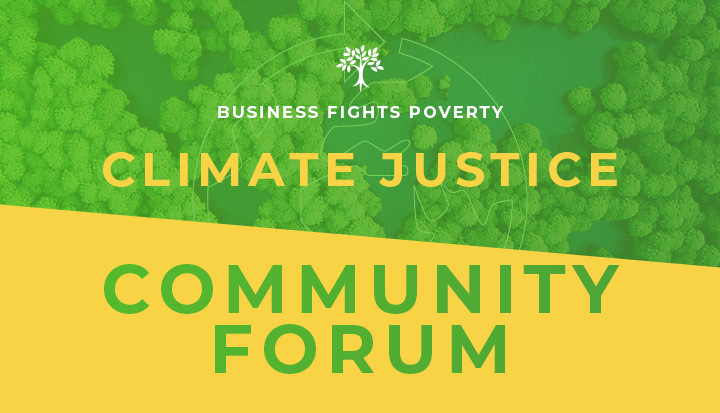
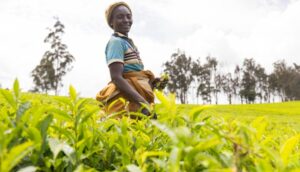
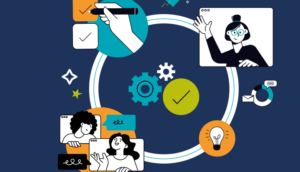
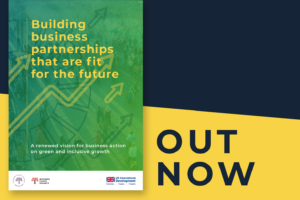
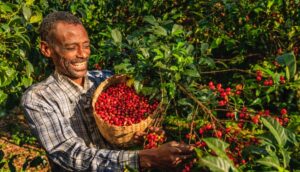



One Response
My name is Yungong Theophilus Jong, Cameroonian and a graduate in Developmental Studies from the Nelson Mandela Metropolitan University in Port Elizabeth South Africa. I am so excited about Business Fighting Poverty and will like CSR a significant part of my career goal and further academic research. I just completed my doctoral research proposal focused on evaluating the commitment of businesses in the extractive industry in Cameroon to the principles and practice of CSR. I have also approached some development organisations in Cameroon regarding the promotion of CSR for Development. But I must confess the difficulty getting to the right people in most intergovernmental and nongovernmental organisations. Many people seem disinterested in CSR despite the glaring need for business to support pro-poor development programmes. For instance, in relief efforts to victims of recent floods in Cameroon, corporations and major private businesses were completely out of the scene. During the Food and Agricultural Organisation’s (FAO) sponsored live telefood programme on the Cameroon national television aimed at raising funds to bring food aid to hunger-stricken parts of the country, corporations and private businesses were nowhere to be found. This to me is accounted for not only by a failure of mobilisation but also the low level awareness of CSR in the country; a clear pointer to the need to step up action in this direction. I am very interested in doing something to improve on the situation but my main difficulty is in the lack of a platform on which to work on. I have even sought volunteer opportunities on this case with some renowned IGOs and NGOs to no avail. I expect that an opportunity to promote this initiative in Cameroon will improve public understanding of the concept, its applicability and its effectiveness as an instrument for sustainable development in Cameroon. It will create a forum where development stakeholders can engage fully to see how the efficiency of anti-poverty development programmes in Cameroon can be enhanced. Businesses will also be encouraged to reflect and to improve on their current social investment profile and philanthropic giving in favour of national and international development goals for Cameroon and other pro-poor economic growth programmes.
I am in dire need of valuable advise on how to connect within your organisation to take on a CSR promotional initiative out here in Cameroon?
Connect with YUNGONG THEOPHILUS JONG via his BFP profile.